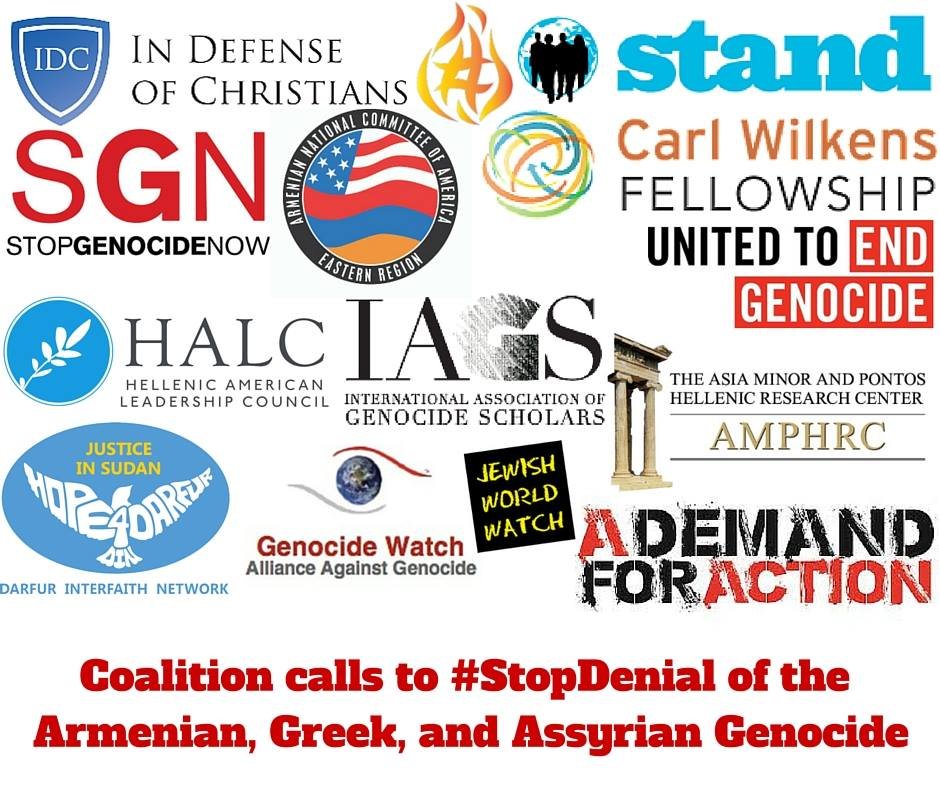14 National Organizations Sign Letter to Wall Street Journal, Philadelphia Inquirer, and Chicago Tribune Demanding Apology, Policy Change
WATERTOWN, Mass.—A coalition of 14 national anti-genocide and human rights groups, led by the Armenian National Committee of America Eastern Region (ANCA-ER), have called on The Wall Street Journal, The Chicago Tribune, and The Philadelphia Inquirer to issue a formal apology for the placement of advertisements denying the Armenian Genocide in their publications, and urged an advertisement policy review to prevent similar incidents in the future.

In letters sent to the publications this week, the coalition explains that “the website linked to in the advertisement clearly denies the Armenian Genocide in several ways, including by disputing the number of people killed, referring to the genocide as a ‘destructive conflict,’ or the ‘1915 tragedy.’ While the coded language used on the website may be unfamiliar to outsiders, we are all too familiar with the use of this language as a tool for denial.”
The letters went on to note that “the advertisement was run by an organization called the ‘Turkic Platform,’ a propaganda group that aims to distract conversation from Turkey’s role in the Armenian Genocide through the use of billboard and newspaper advertisements and other activities.”
ANCA-ER’s Armen Sahakyan thanked coalition partners for taking a “principled and unequivocal stance against the denial of the Armenian Genocide. We will continue our active work in further promoting the anti-genocide alliance to speak with one, united voice against all cases of genocide and/or their denial.”
Leaders of A Demand for Action, Armenian National Committee of America Eastern Region, Asia Minor and Pontos Hellenic Research Center, Carl Wilkens Fellowship, Darfur Interfaith Network, Genocide Watch, Hellenic American Leadership Council, In Defense of Christians, International Association of Genocide Scholars, Jewish World Watch, Students Taking Action Now: Darfur (STAND), Stop Genocide Now, Together We Remember, and United to End Genocide co-signed the letters which outline three concrete requests:
– A formal apology to readers for running the ad, including to those who are victims or descendants of victims of the Armenian Genocide;
– A policy review to ensure the newspaper will no longer accept advertisements which promote hate speech and genocide denial; and
– A meeting with senior staff of the newspaper’s advertising department to better understand the policy under which the newspaper accepted the ad.
On April 20, the Istanbul-based Turkic Platform began a U.S.-wide advertisement blitz denying the Armenian Genocide, spending millions on full page print newspaper ads, online news site ads and billboards. Backlash from the ad campaign has been significant with grassroots action leading to Clear Channel Outdoor first pulling its billboards in Boston, Chicago, and San Francisco and then stopping the campaign nationwide. Some newspapers, including the San Jose Mercury News, issued apologies and pledged a full review of their ad placement policy.



Money speaks many languages and this is what MUST have happened. Why don’t you just boycott the lousy papers that have insulted & denied the wrongs. As long as the money keeps on flowing, they don’t care – does that give you an idea as to the quality of people you are dealing with?
Thank goodness we Armenians are forming alliances with our brothers and sisters in the Greek and Assyrian communities against Genocide denial. Both suffered greatly at the hands of the Turks, as you well know, from 1912-1923.
I recommend the following books to bring all of us up to speed on what the Greeks and Assyrians went through. Share with others.
#1: NOT EVEN MY NAME by author, Thea Halo. “Story of Sano a Pontic Greek from a small village near the Black Sea” ( also on a death march with family members annnihilated).
#2: MASSACRE3S, RESISTANCE, PROTECTORS: Muslim-Christian Relations in Eastern Anatolia During World War I. “This is a pioneering historical investigation of the Assyrian, Chaldean, and Syrian Christian Minorities during World War I, who suffered the same fate as the Armenians.” Author: David Gaunt, Gorgias Press.
In Unity,
Ellen Sarkisian Chesnut